For $10/mo you can get Verizon's Tech Support Pro package, which provides support for a range of technical issues. This service can help with issues involving, computers, laptops, tablets, smartphones, operating systems, and virus removal.
For $10/mo you can purchase Verizon's Digital Security Pro package, which contains identity theft protection, parental controls, and protection from viruses / malware powered by McAfee.
For $7/mo you can utilize Verizon's Internet Security package, which gives internet security to PCs, Macs, and Android Smartphones.
For $9/mo you can enroll in Verizon's Lifelock Select program, which is a form of identity theft monitoring that covers all of your information online. You will even get alert notifications, if your information has been suspected of being compromised.
Verizon is best known as a cellular phone, but they also provide internet and television services. Verizon internet's technologies include a fiber optic network (Fios), high speed DSL and even dial-up for those out of range. Installations work around your schedule and are quick and easy. Along with easy installs, Verizon has a readily available online account management tool and reasonably priced packages that contain almost unescapable 24-month contracts. In 2016, Root Metrics rated Verizon as the most reliable mobile network in the United States.
Verizon High Speed Internet is the 3rd largest DSL provider in the United States.
Verizon High Speed Internet offers service in 11 states.
Verizon High Speed Internet offers DSL internet access.
Verizon High Speed Internet offers service in 5,029 zip codes nationwide.
| City | Population |
|---|---|
| Baltimore | 601220 |
| Bronx | 1366204 |
| Brooklyn | 2486567 |
| New York | 1554156 |
| Philadelphia | 1348684 |
| Pittsburgh | 510485 |
| Washington | 562397 |
Verizon has internet packages, which range from $39.99/mo to $194.99/mo.
Verizon has both download and upload speeds up to 500Mbps.
One of the most common debates among internet users is whether Wi-Fi or a wired connection delivers better speed and stability. In today’s world, where everything from remote work to online gaming depends on strong connectivity, this is an important question. Should you prioritize the freedom of Wi-Fi or the consistency of Ethernet?
In this blog, we’ll explore the key differences between Wi-Fi and wired connections, discuss their pros and cons, and help you determine which setup is best for your household or office. By the end, you’ll know whether convenience, performance, or a hybrid approach is right for you.
Before comparing speed and reliability, let’s clarify what sets these two technologies apart:
Both methods give you access to the internet, but how they deliver it—and the quality of your experience—can vary greatly.
There’s no denying that Wi-Fi has transformed how we use the internet. It makes connecting multiple devices in different rooms effortless, without dealing with tangled cords. Whether you’re streaming on your phone in bed, video-calling from your patio, or connecting your smart TV, Wi-Fi keeps you mobile and connected.
However, this convenience can come at a cost—speed and reliability.
👉 Want to know how your Wi-Fi is performing right now? Use this speed test tool to measure your connection.
For those who demand performance, a wired Ethernet connection is tough to beat. By plugging your device directly into the router, you bypass many of the factors that can slow Wi-Fi down.
For power users—like gamers, remote workers, or households with multiple heavy internet users—wired connections often deliver the best experience. To make sure you’re pairing your setup with the right plan, check out this guide to the best high-speed internet plans.
So, which one should you go with? The answer depends on your household’s habits, devices, and internet priorities.
Choose Wi-Fi if:
Choose Wired if:
No matter which option you choose, you can optimize performance:
Wi-Fi Users:
Wired Users:
Not sure how much speed you really need? Try this internet speed needs calculator. For more detailed insights, check this guide on matching your internet speed to your needs.
You don’t have to choose one or the other exclusively. Many households benefit from a hybrid setup:
Wi-Fi for smartphones, tablets, and casual browsing.
Ethernet for gaming consoles, smart TVs, or workstations that demand stable speeds.
This approach combines flexibility with performance, ensuring you always get the best connection for the task at hand.
Ultimately, the Wi-Fi vs. wired internet debate boils down to what you value most: convenience or performance.
Wi-Fi offers unmatched flexibility and mobility, making it perfect for everyday browsing and on-the-go use.
Wired connections deliver superior speed, stability, and low latency—ideal for gamers, streamers, and professionals who need consistency.
For many households, a combination of both is the ideal solution. By understanding the strengths and weaknesses of each option, you can create an internet setup that works for your specific needs and ensures you always stay connected.
To explore the latest tips on boosting your connectivity and choosing the best internet plan, check out this guide on boosting your connectivity.
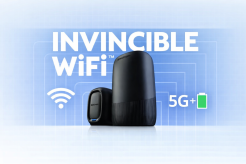 Wifi
Technology
Wifi
Technology
Discover how Spectrum INVINCIBLE WiFi combines WiFi 7, 5G backup, and battery protection to keep your home internet running during outages and disrupt...
 Internet Bundles
Broadband Deals
Internet Bundles
Broadband Deals
Discover the fastest high-speed internet plans. Compare fiber and cable options, speeds, and pricing to find the perfect plan for your home or busine...
 Wifi
Wifi
Discover the best ways to find free Wi-Fi anywhere you go, including cafés, stores, libraries, and travel hubs, plus tips to stay safe online.
 cheap internet offers
cheap internet offers
Compare value vs. premium internet plans to find the best fit for your household. Learn pros, cons, speeds, and costs to make a smart choice.
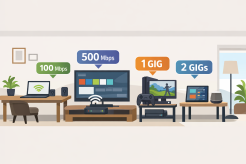 Internet Bundles
cheap internet deals
cheap internet offers
Internet Bundles
cheap internet deals
cheap internet offers
What makes Windstream great is, internet service has no data cap, reliable internet, and there is always a real person to call when you needed help....
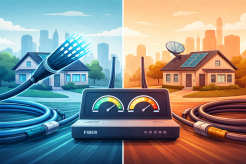 Internet Bundles
Internet Bundles
Compare fiber internet vs cable internet for speed, reliability, cost, and availability to find the best home internet option for your needs.
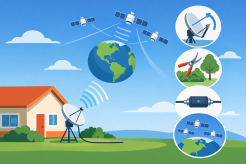 Technology
Broadband Installation
Technology
Broadband Installation
Satellite internet can be a good option for rural areas. But if you are having a slow internet connection, you can try this solution to boost satellit...
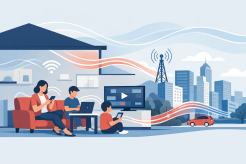 Internet Bundles
cheap internet offers
cheap internet plans
Internet Bundles
cheap internet offers
cheap internet plans
Explore the latest Verizon plans, pricing, and network updates, including wireless Unlimited plans, Fios fiber internet, and 5G home options.
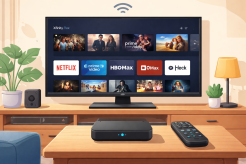 Internet Bundles
Internet Bundles
Discover what Xfinity Flex offers, including free movies, 4K streaming, supported apps, pricing, and whether it’s worth it for Xfinity Internet users.
 Internet Bundles
Internet Bundles
Fast, reliable internet is essential for business growth. Learn how internet speed impacts productivity, customer experience, and long-term success.